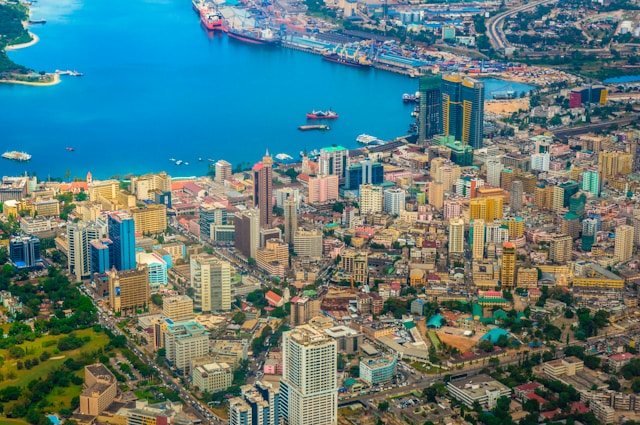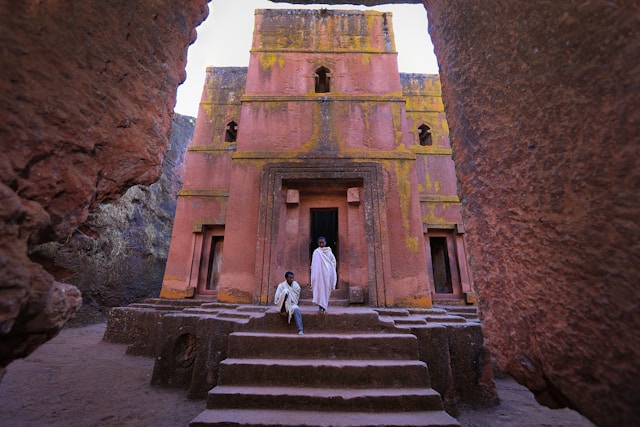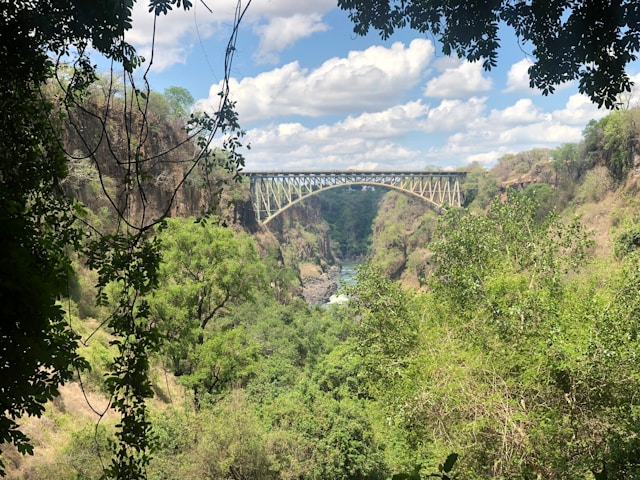Egypt has to be one of the most diverse tourist destinations on the entire African continent! The bustling, frenetic city of Cairo stands juxtaposed against the majestic calm of the Giza Pyramids and the Great Sphinx. In Luxor, you should visit the Valley of the Kings and watch the sun set over the gigantic Temple complex of Karnak. Aside from these riches of antiquity, Egypt offers a remarkable desert and a wealth of underwater treasures.
People & Culture
Egypt is extremely diverse, making it difficult to generalize its people and culture. Most Egyptians are of Eastern Hamitic stock, and Nubians, Greeks, Armenians, and other Europeans represent the remainder. In simple terms, four cultural groups populate modern-day Egypt: Fellahin, Copts, Bedouins, and Nubians.
Fellahin are Egyptian peasants who, since the time of the Pharaohs, have
populated rural areas and lived off the land. Many Fellahin have moved into
cities and transformed their way of life, so this term is somewhat dated.
Copts are Christian adherents of the Eastern Orthodox Church, and are of the
same race and culture as other Egyptians.
Bedouins are nomads and Egypt’s desert dwellers. Though they traditionally
roam, over time, they have begun responding to government efforts to ground
their populations and provide childhood education.
Nubians are dark-skinned but have very few cultural, genetic, or other aspects
in common with other dark-skinned Africans. Their ancestral lands lie to the
south of Aswan, although most Nubians have now migrated to towns in response to
changing lifestyles.
Egyptians are generally hospitable and friendly, and are accommodating to visitors. However, Islam is the single most important cultural influence in Egypt, and its religious expectations extend to travellers. Society is conservative. Women, even visitors, are expected to dress and act modestly – no flimsy clothing or loud laughing, for example. Do not proselytize about religion, as this behaviour is illegal.
Arabic is the official language, while English and French are widely used in business and among educated urbanites. The cultural scene is rich, and Egyptians are proud of their literature, film, music, and television. Egyptian cuisine is exquisite, and local specialties include roasted pigeon, grilled aubergines (eggplant), kebab,s and chickpeas. Beer, wine, and other alcoholic drinks are available in bars and restaurants, especially at hotels catering to tourists. During the month of Ramadan, defer to local sensitivities and avoid drinking during daylight hours.
How to Get There
Egypt is an international travel hub, and many airlines fly directly into the country from Europe, Africa, and other points abroad. Ferry boat services connect Egypt to Saudi Arabia, Jordan, and the Sudan. Additionally, some cruise ships stop over in Egypt as part of their African sailing itinerary.
Both Libya and Israel are accessible by road from Egypt. Coach bus service connects Egypt to Israel’s Tel Aviv and Jerusalem; private vehicle services are also available.
Visa
Egypt requires visas from citizens of most countries, including those of the European Union, the United States, and Canada. If you are traveling only to certain areas – e.g. Sharm El Sheikh, Dahab, Nuweiba, and Taba resorts – a visa may not be required. Citizens of the UK, Australia, Canada, New Zealand, and the United States may be able to obtain entry visas at international airports and other points of entry within Egypt. However, this may cause travel delays, so you are advised to secure your visa prior to travel.
To enter Egypt, your passport must be valid for six (6) months from the date of arrival, and must expire no sooner than one (1) week after your expected date of departure. These requirements are subject to change and should be verified prior to travel.
Accommodation
Tourism is a major industry in Egypt, and the nation’s accommodations follow suit with diverse options. Most Egypt tours patronize accommodations that offer Western amenities, which can include everything from budget hotels to 5-star resorts. Generally speaking, hotels in Egypt offer good value. Be sure to book well in advance for stays during the popular winter season.
Getting Around
Local flights are the fastest and most efficient way to get around, making them a popular choice for Egypt tours. However, there are several other comfortable methods of transportation available.
Luxury, air-conditioned trains are a good alternative to air travel. Several major tourism hubs, including Cairo, Luxor, Aswan and Alexandria, are accessible via train. Within Cairo, the local metro is inexpensive and fast for getting around town. Additionally, a luxury ferry service links Aswan and Luxor along the Nile. The adventurous and thrifty can also sail along the Nile by using traditional boats known as feluccas.
Egypt rental cars afford freedom from fixed transportation schedules, but note that driving here is aggressive. If you would like to rent a car, it is best to also hire a driver. Generally, the roads are good along main routes and near major towns and cities. Cars drive on the right.
Local buses are a budget-friendly way to tour Egypt. Buses connect nearly every city and town throughout the country, but be warned that the buses are not luxurious and may be crowded to play loud movies and music. Luxury shuttle services are a more appropriate choice for most Egypt tours, as they better suit Western expectations and connect to many tourist destinations.
Travel Insurance
All travellers to Egypt should have health insurance and travel insurance. Note that your travel insurance should include emergency evacuation.
Climate
Egypt receives very little rain and is too temperate for snow, so seasons are marked by heat. The Egyptian summer, the hottest and driest months, falls between April and October. Winter months are mild with cold nights.
The best time to visit is between November and March, some of the most pleasant months of the year. In April, the khamasin rolls in, bringing with it hot, dry winds from the Sahara. In terms of weather, the Red Sea coast is one of Egypt’s most enjoyable climates and is pleasant year-round. In Cairo, winter temperatures range from 9 °C to 25 °C (48ºF to 77ºF), while summers vary between 9°C and 35°C (48ºF to 95ºF).
Money
The local currency is the Egyptian Pound. There are no restrictions on the import/export of foreign currency, although the export of Egyptian Pounds is prohibited.
Major credit cards, including Visa, MasterCard, American Express, and Diners Club, are widely accepted around Egypt. Travellers’ cheques may also be changed at banks and Forex Bureaus around the country; U.S. Dollars, Euros, and British Pounds Sterling receivethe best exchange rates. Credit and debit cards are also accepted at some local ATMs.



